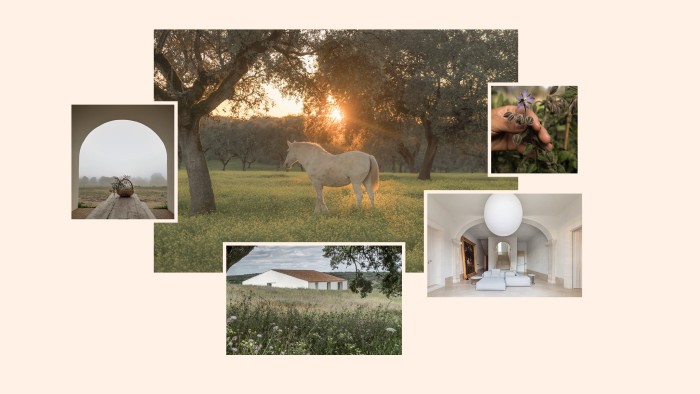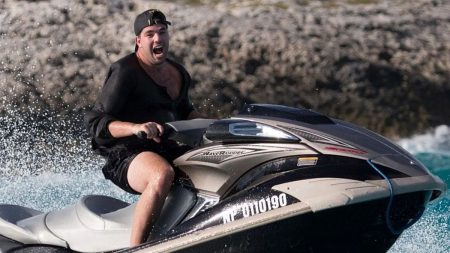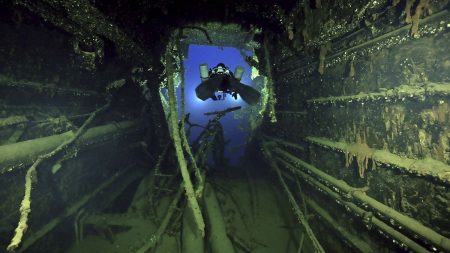Summarize this content to 2000 words in 6 paragraphs in Arabic In the middle of a family farm of cork and olive trees in Portugal’s remote agricultural region of Alentejo an extraordinary site is under construction: a mazelike complex of concrete walls that look as if they were made of rammed earth, inspired by those historically built in the area to protect both plants and animals. While currently resembling a massive Roman ruin, it is conceived as the energy centre for a small international community. “It will be a place for people to gather to take part in the rituals of agriculture,” says the Portuguese pilot and hospitality pioneer João Rodrigues, “from cheesemaking to breadmaking to winemaking to the harvesting of honey and the preserving of vegetables.” The project, Herdade No Tempo, is conceived as something of a modern utopian development, an opportunity, says Rodrigues, to reconnect with the land and each other, and “elevate what we inherit”. Architectural and ideological projects like his, which allow nature and craft to dictate the design and community ethos, are growing in number, and attracting people from around the world. Many with the privilege of means or jobs that allow mobility are seeking that quality of life in Portugal and moving there full-time, facilitated first by the golden visa programme (introduced in 2012, it was so popular that the government revamped it in 2023 so that property is no longer a qualifying investment) and then the digital nomad visa. (It also doesn’t hurt that non-residents only pay a 25 per cent flat tax on income earned in the country.) In September 2024 alone, 1,554 families were awarded residence permits; 567 permits were given to Americans and 234 to those from the UK. “Many people are unhappy with the state of the world — politically and socially — and that there is a lack of integrity, morals and respect for the environment,” says Rodrigues. “More and more, people are feeling the need to live in harmony with nature.” And more people are also seeking to build communities to accommodate that need, seeing it as both a challenge and an opportunity. Fifteen years ago, when Rodrigues asked the now award-winning architect Manuel Aires Mateus to help him design a family retreat in Comporta, he could not have foreseen that it would lead to master planning this development. That first project — which he dubbed Casas na Areia (“Houses in sand”) — featured a surreally beautiful living room and kitchen with a floor of fine sand that captured the attention of the design world; in 2010 it was selected to represent Portugal in the Venice Architecture Biennale. When people asked to rent Casas na Areia it sparked the launch of boutique hospitality company Silent Living, which now includes several other properties, including Casa No Tempo, a house on 1,000 acres of farmland that Rodrigues inherited. Later, after guests began to ask them to help them build their own houses, Rodrigues and Aires Mateus started to dream up a bigger, more permanent community on the farm, Herdade No Tempo. (Herdade means “homestead” in Portuguese). They carefully chose 14 lots where nature would not be disturbed. “The rocks and trees have been on this land for centuries, so we [wanted to] build around them,” says Rodrigues. Each of the families that buys a house will have to contribute to farm responsibilities and as the word ‘tempo’ expresses, commit to [giving] what is most precious to all of us — our timeHalfway through designing the project, Covid happened, and the ethos behind Rodrigues’ Silent Living community became even more relevant; the waiting list for the 14 houses doubled. While project completion is set for 2028, later this month Rodrigues plans to send the people on the list two books he has self-published about the past, present and future of Herdade No Tempo, in order to communicate the project’s manifesto of regenerative agriculture and community. Active monthly contributions to farm responsibilities will include those pertaining to carbon retention, biodiversity, water protection, food production, soil health, animal wellbeing and waste and energy management. “Each of the families that buys one of the nine big houses will have to work alongside our team on these areas and, as the word ‘tempo’ expresses, commit to [giving] what is most precious to all of us — our time.” Serviced homes these are not. He hopes the books will help interested buyers understand that they are signing on as caretakers of that land, not real estate speculators. While he understands that most owners will not be living here all year round (Silent Living can rent the homes out to guests if the owners like), he says he will choose buyers based on their skills and enthusiasm to support the project. “Any potential homeowner should understand that we are building a community, as well as a blueprint for a healthier and nature-forward way of living.”Seven years ago, American tech investor Andrew Rosener moved to Lisbon with his young family. For him, at first, Portugal’s appeal was that it’s an ideal place to raise children. “I have lived all over the world — Germany, Panama, Australia — but Portugal represents to me classic family values. People don’t come here to work, they come to live.” He adds, “Now I can see what’s happening: creatives and entrepreneurs from diverse backgrounds come here searching for something intangible. Eventually, many of us find exactly what we were looking for, which is deep authenticity: 2,000-year-old olive trees; like-minded people that value wine made like it was 500 years ago and textiles made by hand that took 80 hours to weave; and undeveloped coastline and pristine nature.”During the pandemic, Rosener and his family spent much of their time at São Lourenço do Barrocal, a historic farm estate of just over 2,000 acres near the ancient hilltop settlement of Monsaraz, which over 14 years was thoughtfully transformed into a resort with 24 rooms and suites and 16 cottages. Rosener recently bought the first of 25 houses that will eventually be built on the property. (Two, including Rosener’s, will be completed this summer.) I have lived all over the world — Germany, Panama, Australia — but Portugal represents to me classical family values. People don’t come here to work, they come to liveBarrocal’s original designer and co-owner, José António Uva, who, along with his architect wife Ana Anahory runs Estúdio Lisboa, has spent the past decade applying for permits, choosing lots and designing the houses that will be built, like the resort, from local materials; all of the houses, due for completion across the next seven years, have already been sold at an average price of €400,000 per plot (most plots are about 7,000 sq m, with house construction costs averaging at around €1.2mn). Uva describes the design as being “born among stones and trees, and like them, simple, stripped, and vernacular in their essential forms: from handmade bricks to the use of lime and local stone (granite, limestone and shale), to the inclusion of salvaged tiles, roof terraces, deep recesses and big chimneys.” His inspiration, he shares, is the utopian Sea Ranch community in northern California, built by a group of architects overseen by Lawrence Halprin in the 1960s. “Portugal has become the new California,” says Claus Sendlinger, founder of Design Hotels, who, in 2019, moved from Ibiza to Portugal with his two boys. In the past 10 years or so, the country has attracted a mix of tech entrepreneurs and creative dreamers who are drawn to “the golden light, the laid-back beach lifestyle and the mild climate”, he says. Pair that, he says, with the fact that Portugal still has large swaths of abandoned agricultural land, and you have fertile ground for experimental developments. He should know. Sendlinger’s latest enterprise Slowness is very much focused on community-based projects, from the Flussbad campus in Berlin to the upcoming Casa Noble hotel and cultural salon in Lisbon that will act as a meeting house for a farm estate they are trying to develop on the Arrábida Peninsula. Trying, he says, because, “When you come to Portugal to build something, patience is key.” But he believes that ultimately that is a positive thing because it encourages more thoughtful, sustainable development. In the semi-abandoned agricultural village of Barrosinha, part of the municipality of Alcácer do Sal, the foundations for a similar ideological development are being laid. A little over a decade ago, former corporate financier Mircea Anghel, who was living in Lisbon, went searching for a woodworker to learn how to build a tiny house. “I didn’t really know what I was doing. I only knew that I needed to find a new way for my life, that in some ways I was searching for freedom,” he recalls. He found a boat builder in Barrosinha, and worked with him in his free time. “I was so inspired by the people I met making things with their hands, so it became harder and harder to return to my computer.” He eventually gave up finance for furniture design and, six years ago, moved his studio from Lisbon to an old sawmill in Barrosinha. Those old people are the biggest hipsters I had ever met, with their seasonal and local eating, how they conserve things and deal with waste and how ultimately ecological they were“During Covid I moved my family into a neighbouring farmhouse,” Anghel says, adding that he was inspired by the elderly workers who remained in the village even after it went bankrupt in 2009. “They were all over 80. It’s kind of like a Blue Zone,” he laughs. “Those old people are actually the biggest hipsters I had ever met in my life, with their seasonal and local eating habits, how they conserve things and deal with their waste and how ultimately ecological they were.”Soon after moving to Barrosinha, Anghel met Lionel Jadot. The Belgian designer has spent the past decade building Zaventem Ateliers, an old paper factory transformed into workshops now inhabited by a collective of artisans. Together, the two designers recognised the potential of reviving this agricultural village of almost 5,000 acres with a community of skilled craftspeople and artists. “I thought it could be a Zaventem 2.0,” he says. In the summer of 2023, they, along with their third partner, the real estate developer and investor Edouard Fernandez, secured a 10-year operating agreement to develop part of the property; renovating several of the main industrial buildings, and regenerating the land, bringing back the vineyards (this past December they sold their first 1,000 bottles at a fundraising event in Brussels). They also opened a café and restaurant and built several workshops; their first artists — Lisa Egio and Elliot Kervyn — the artist duo behind Frizbee Ceramics moved in last autumn.Currently they are in the middle of bringing on a stable of investors to help fund the next steps. Phase two, which will begin once the next round of investment is completed, involves bringing in innovative architects and landscape architects, such as Bas Smets, to redesign and regenerate the land and build sustainable homes “in harmony with the land and nature”, says Jadot. “We are spearheading a different kind of business model,” says Pierre Rousseau, former head of global markets for BNP Paribas Asia Pacific, and one of Barrosinha’s early investors. “Most people want a return immediately and they don’t grow their business right and their assets collapse. But when you do things right — by creating value over a long period of time — you create resilience and ultimately, end up more profitable.”Fernandez, who helped master plan the Diagonal Mar community project in Barcelona, which transformed a depressed industrial area into a vibrant hub, says that while there are quite a few visionaries currently working on what he dubs “place-making regenerative developments” around the globe, Portugal is most interesting to him and others because in the past several decades it hasn’t been developed as much as other Mediterranean countries. And because it has “an ideal climate for hospitality-related projects focused on nature-based solutions, a great underlying culture of warmth and acceptance and, in the past 10 years, an influx of residents from abroad and tourists who are looking to be more in touch with nature”.Like the Herdade No Tempo development, Barrosinha’s master plan is designed with nature and regenerative land management at its centre, but it also prioritises arts and crafts. Its founders believe that they can grow a model of a community that repairs and resets our current value systems. “The issue with our current western society is that we are paying money for things that are essentially bad for us and not paying for things that are good for us — nature, fresh air, biodiversity, social impact — and because the value of those things is not measurable, we end up not being able to protect them,” says Anghel.“For me the essence of creativity is to impact the world around you, making situations and spaces more fun and liveable, to inspire people to dream,” says Elliot Kervyn. “Artists do this all the time but are rarely given credit. Here at Barrosinha we have a chance to be the main actors, to show the value of artists and makers beyond what we make.”Find out about our latest stories first — follow @ft_houseandhome on Instagram
رائح الآن
rewrite this title in Arabic Creating new utopias in Portugal
مال واعمال
مواضيع رائجة
النشرة البريدية
اشترك للحصول على اخر الأخبار لحظة بلحظة الى بريدك الإلكتروني.
© 2026 جلوب تايم لاين. جميع الحقوق محفوظة.









